Loading
Search
▼ Okinawa: Secrets For a Long and Happy Life
- Category:Tourism
Japan’s sunny southern islands see a remarkable number of 100th birthdays – the scientists have their theories as to why, but we’ve travelled to research our own list of top Okinawan lifestyle tips.
Mrs Kajigu used to get up at 5am. Now that she is 104, she allows herself a lie-in, except for the two days a week when she rises early for the shuttle bus that circuits the small island of Taketomi, bringing together the older members of the community. Japan has the world’s highest share of centenarians, but in the southern islands of Okinawa, people live long even by Japanese standards. Sitting in her spacious tiled-roof house, with carved wooden ‘angama’ masks on the walls, Mrs Kajigu proffers a tray of sweet-potato cakes, and downplays the significance of her age. ‘In Okinawa, 97 is when we traditionally have a big party,’ she says. ‘For my 100th birthday, I just celebrated with my family.’
The main island of Okinawa lies 1000 miles southwest of Tokyo; the Yaeyama group, to which Taketomi belongs, is another 240 miles towards Taiwan. Taketomi is just one corner of this subtropical archipelago, which has health researchers poring over their data. It’s clear talking to Mrs Kajigu that the key to long life is not a one-size-fits-all approach: ‘I eat anything,’ she says. ‘When I get together with friends, I do karaoke, even though my voice isn’t what it used to be.’ An island-hopping tour around Okinawa is a chance to pick up small clues about what goes into this famously healthy lifestyle.
Getting enough vitamin D is rarely a problem in Okinawa. Just one degree north of the tropics, the Yaeyama group is especially blessed with sun. On the island of Ishigaki, Taketomi’s larger neighbour, fields of sugarcane chequer the flat land between the jungle-cloaked mountains and the coral-fringed shore. The light has the kind of brilliance that sends painters rushing to their easels. What’s good for the banana plants and mango trees is also a charm – taken in moderate doses – for the 49,000 people of Ishigaki.
On the main islands of Japan, custom as much as weather limits the beach-going season to July and August, but in Okinawa this stretches from April to October, or longer. While their compatriots to the north are busy with cherry blossoms or early autumn leaf-peeping, beachgoers here have ample time for typical summer pursuits such as suika-wari – a Japanese version of the piñata, where blindfolded players holding baseball bats take turns trying to locate and split open a watermelon laid on a mat.
Driving from Ishigaki town, a circuit of the island takes about four hours. This being Japan, there are vending machines for cold drinks even on sleepy back roads, but thirst is not yet an issue at an early-morning stop by the little white lighthouse at Uganzaki. Just off the point is a rock shaped like the kind of slipper you change into on entering a Japanese home. A crackling in the bushes on the hill to the side announces a party of hunters and their dogs, moving through the thicket in search of wild boar. Further east along the coast, two fishermen with cone hats and nets cross the road that leads to Sukuji Beach. This broad sweep of sand curves around a bay of uncanny stillness. With one solitary hotel nearby, it’s usually a peaceful spot. Today the only movement is a woman doing yoga on the sand, the only noise the frenetic chatter of cicadas. On many other beaches around the Yaeyama Islands, finger-sized stubs of whitened coral lie scattered across the sand, left there by the tide, making a glassy sound when knocked together under walkers’ shoes. Locals sometimes use the pieces in garden wind-chimes, or as chopstick rests and paperweights.
Nearby Kabira Bay offers an easy chance to see living coral. Glass-bottom boats reveal an undersea geography of canyons and defiles more intricate than any on land, if on a smaller scale. Beneath the turquoise surface of the bay, clownfish and Moorish idols flit between brain corals and toaster-sized clams, two species for which a hundred years is no great record.
In any region famed for its number of centenarians, diet gets the most excited attention. And in Okinawa, as with other places, not everything in the local cuisine seems an obvious recipe for good health. Among the best-known dishes here is rafute: cubes of fatty pork belly simmered in a stock that contains several spoonfuls of black sugar.
This kind of food, though, would have been a rare indulgence in times past, when most islanders lived by the saying ‘eat every bit of the pig except its squeal’. Even now, in more prosperous times, mimigaa (chopped pig’s ears) is a staple dish. Another motto, still repeated today, is ‘hara hachi-bu’ – ‘eat until you are 80 per cent full’. Traditions matter at Funakura-no-sato, a restaurant in a cluster of old buildings by the sea outside Ishigaki town, run by Den Motomura.
‘Okinawan food had influences from other parts of Asia,’ he says – the Yaeyama Islands are closer to the Philippines and even Vietnam than they are to Tokyo. Chanpuru, a kind of stir-fry, takes its name from a similar dish in Indonesia called campur. Chinese cooking inspired tofuyo: cubes of tofu soaked in awamori (rice-grain spirit) and fermented, a dish akin to a creamy blue cheese, and a former favourite of Okinawan royalty. ‘We eat tofu very often,’ says Mr Motomura. ‘And also a lot of seaweed compared to the rest of Japan. There’s a bigger variety here.’ He singles out one kind in particular: ‘I think mozuku helps us to live longer.’ This type of seaweed is farmed in huge beds just offshore from the islands, and is harvested by divers holding what are essentially giant vacuum cleaners.
While mozuku has a gloopy texture (vinegar gives it more kick), sea grapes – another local delicacy – have a satisfying pop to them. At Hitoshi restaurant back in Ishigaki town, chef Shimoji Hitoshi serves them alongside sliced raw tuna. ‘My father fished for tuna and my mother sold it,’ he says, standing in front of a photo of his parents. ‘When I go home, though, I like to have ramen.’
Yusei Taba sits cross-legged behind his low worktop, and picks a chisel from more than 50 tools lined up on a lazy Susan. He has been a mask-maker for 56 of his 83 years, crafting wooden angama worn by dancers in festivals. Most are displayed in pairs, one with a frown and one with a smile. ‘The one with a single tooth represents an old man,’ says Mr Taba. ‘The one without teeth is an old woman – people thought that the more children a woman delivered, the more teeth she would lose.’ He points at the male mask with a chuckle: ‘I look like him now. But my upper body is very good at least.’ In his workshop in Ishigaki town, Mr Taba is helping to preserve a craft that was nearly abandoned after WWII. ‘I see fake masks from Taiwan and I’m disappointed,’ he says. ‘I feel a responsibility to keep our traditional ones.’ It used to take him three days to make two masks, but now he has it down to one. ‘I’m getting quicker all the time.’
The mask-maker is a good advert for the idea of continuing to hone one’s talents beyond standard retirement age – and many researchers also believe that a habit of sitting on the floor, with all the getting up and down involved, is a lifetime benefit to bones and muscles. In Okinawa, craftsmen and women gain more respect with every year under their belt, but there’s still room to add a personal touch to an ancient method. Until the 1870s, these islands were part of the Ryukyu Kingdom, a state that played a nimble diplomatic game between Japan and China. Its people paid their taxes in cloth, and Ishigaki’s variety, called Yaeyama jofu, was prized. Woven from fibres of ramie – a plant related to nettles – this textile made kimonos light enough to be worn in the Okinawan summer.
Sachiko Arakaki is one of the few practitioners of the craft today. For more than 30 years, she has researched historic colour patterns to feed through the looms in her workshop on the outskirts of town, but her inspiration is not limited to the past. ‘The island is so rich in plant life,’ she says. ‘I wanted to make dyes from what I could find in my garden and in nature.’ Meanwhile, three miles up the west coast from Kabira Bay and its corals, an even bigger island icon is getting a radical makeover. The shisa, or ‘lion-dog’, is a guardian spirit statue seen on rooftops and beside gateways across the islands of Okinawa. At his roadside pottery studio, Hisashi Katsuren has turned the shisa’s usual bombastic scowl into a zany grin, with a technicolour paint-job to match. ‘The traditional statues are for protection from disease and other misfortune,’ he says. ‘But I think of mine as being like people. That’s why they have a big smile. It’s like I communicate with them as I make them.’
The ferry from Ishigaki to Taketomi crosses four miles of sea, and seemingly several decades. In the centre of this island, wooden-walled houses of an earlier era sit low behind coral-stone walls bursting with flowers. Villagers sweep the sandy streets every morning, but on the eve of Tanadui – the annual seed-planting celebration and the big event of the year – preparations are even more diligent. Mrs Kajigu has witnessed a century of Tanadui festivities, since the days when she walked to school barefoot. ‘I still remember some of the dances,’ she says. ‘Now my granddaughter will be up on the stage.’ On the lane outside, one of her neighbours practises her steps in the evening light. Further on, two dozen men stand in a semicircle, with paper cut-out horses’ heads fixed to their midriffs. Drummers behind them start to play, and the mock-horsemen launch into a high-kneed dance, as a 10-year-old boy keeps pace with a sharp-pitched chime. Other rehearsals can be heard from a distance, the sound carrying well over the flat island.
The festivities begin with four residents who have turned 77 (another symbolic age here) invited up on an outside stage to be specially honoured. What follows may only fully make sense to islanders: a series of costumed performances whose names are written on a flip-chart to one side. ‘Red Horse’ is followed by ‘Quick Talking’. One dance might involve a woman in a saffron-yellow kimono and tasselled headdress moving with measured grace; another celebrates the arrival of iron tools on the island. When the board announces the fortune-bringing Yuhiki dance, the backing curtain tweaks open, and a man with a walking stick, strap-on beard and bushy eyebrows is guided onstage by two boys in red robes and mint-green turbans. Two more men appear, pulling a miniature cart loaded with sheaves of millet. The ritual movements are enacted, ending with the youngsters doing their bit to great acclaim, the crowd throwing money onstage. In spirit, the dance brings together three generations.
Kai-kun is in his element, and that element is water. His job is to take sightseers across a short, shallow channel to Yubu Island, a botanic garden. The water buffalo uses his 600-kilo bulk to pull a passenger cart. ‘He doesn’t need directions – he knows the way,’ says the driver, Tsutomu Takamine. While his bovine autopilot wades on at unhurried pace, Mr Takamine picks up his sanshin – the Okinawan three-string banjo – and begins to play and sing along to the folk song Asadoya Yunta, the perky rhythm of the chorus at odds with the slow, rocking motion of Kai-kun’s haunches. The cart reaches the far shore and Mr Takamine calls out ‘stoppu’ to the buffalo. ‘He knows Japanese and English, and I’m teaching him Mandarin.’
The garden, filled with subtropical plants, lies just off Iriomote, Japan’s jungle frontier. This island is larger than Ishigaki, but has less than a twentieth of its population. Even those few inhabitants are concentrated in a handful of villages along a single coastal road. Stray not far from this tenuous ribbon of civilisation, and you’re in the realm of humid forest, mangrove-thick riverbanks and the endangered Iriomote wildcat, unique to this island. Most of the interior is inaccessible, and for people like Naoya Ojima, this is a good thing. He has worked as a guide for 12 years, sharing his natural knowledge in those parts of Iriomote that humans can just about reach.
Today, he leads a party of kayakers up one of the creeks through the mangroves, pausing his paddle from time to time to keep the group together. ‘Mangroves create five to six times more oxygen than a normal tree,’ he says. ‘Fish can hide among the roots, and it holds the mud in place. People used to cut them to make charcoal. Now Japanese firms are paying to plant more of them in Southeast Asia.’ Pinaisara Falls can be seen up ahead, white spray plunging 55 metres off a cliff face and disappearing into the forest. The final half hour is uphill on foot, past trees buttressed with giant roots. By the pool at the foot of the cascade, walkers eat packed lunches on giant boulders. The fine mist from the waterfall is suddenly replaced by a near-tropical downpour, and everyone returns from the trek thankful for the waterproofs they brought for the kayak, which steam gently when the sun returns.
Five miles west of the falls, the coast road ends at the tiny port of Shirahama. Beyond here there is still one settlement, but it must be reached on water. The heavens have opened again, and it seems unlikely that the glass-bottom boat about to cross Funauki Bay will provide much in the way of sights. But soon into the short trip, the water beneath the rain-pitted surface becomes clear. Coral gardens unfold beyond the viewing window, yellow and bright blue. A sea turtle glides past and the rain subsides. The boat’s pilot, Mr Ikeda, guides his craft into the small harbour at Funauki, a village of 50 people and seemingly 500 butterflies. At the quayside restaurant, also Mr Ikeda’s home, his uncle stops by with a bucket of sardines, and slices one into sashimi. Mrs Ikeda senior appears with a warm smile and a tray of soba noodles, papaya salad and rice flavoured with fragrant pipachi pepper. She is keen to demonstrate a traditional dance from the village. It’s tempting to linger, but the boat must head back. As Shirahama port draws near, a headland comes into view. Standing atop the golden rock and spreading its branches wide is a pine tree – the Japanese symbol of longevity.
This article appeared in the August 2016 edition of Lonely Planet Traveller Magazine. Rory Goulding travelled to Japan with support from the Okinawa Convention & Visitors Bureau (en.okinawastory.jp). Lonely Planet contributors do not accept freebies in exchange for positive coverage.
By Rory Goulding
Mrs Kajigu used to get up at 5am. Now that she is 104, she allows herself a lie-in, except for the two days a week when she rises early for the shuttle bus that circuits the small island of Taketomi, bringing together the older members of the community. Japan has the world’s highest share of centenarians, but in the southern islands of Okinawa, people live long even by Japanese standards. Sitting in her spacious tiled-roof house, with carved wooden ‘angama’ masks on the walls, Mrs Kajigu proffers a tray of sweet-potato cakes, and downplays the significance of her age. ‘In Okinawa, 97 is when we traditionally have a big party,’ she says. ‘For my 100th birthday, I just celebrated with my family.’
The main island of Okinawa lies 1000 miles southwest of Tokyo; the Yaeyama group, to which Taketomi belongs, is another 240 miles towards Taiwan. Taketomi is just one corner of this subtropical archipelago, which has health researchers poring over their data. It’s clear talking to Mrs Kajigu that the key to long life is not a one-size-fits-all approach: ‘I eat anything,’ she says. ‘When I get together with friends, I do karaoke, even though my voice isn’t what it used to be.’ An island-hopping tour around Okinawa is a chance to pick up small clues about what goes into this famously healthy lifestyle.
Bring sunshine into your life
Getting enough vitamin D is rarely a problem in Okinawa. Just one degree north of the tropics, the Yaeyama group is especially blessed with sun. On the island of Ishigaki, Taketomi’s larger neighbour, fields of sugarcane chequer the flat land between the jungle-cloaked mountains and the coral-fringed shore. The light has the kind of brilliance that sends painters rushing to their easels. What’s good for the banana plants and mango trees is also a charm – taken in moderate doses – for the 49,000 people of Ishigaki.
On the main islands of Japan, custom as much as weather limits the beach-going season to July and August, but in Okinawa this stretches from April to October, or longer. While their compatriots to the north are busy with cherry blossoms or early autumn leaf-peeping, beachgoers here have ample time for typical summer pursuits such as suika-wari – a Japanese version of the piñata, where blindfolded players holding baseball bats take turns trying to locate and split open a watermelon laid on a mat.
Driving from Ishigaki town, a circuit of the island takes about four hours. This being Japan, there are vending machines for cold drinks even on sleepy back roads, but thirst is not yet an issue at an early-morning stop by the little white lighthouse at Uganzaki. Just off the point is a rock shaped like the kind of slipper you change into on entering a Japanese home. A crackling in the bushes on the hill to the side announces a party of hunters and their dogs, moving through the thicket in search of wild boar. Further east along the coast, two fishermen with cone hats and nets cross the road that leads to Sukuji Beach. This broad sweep of sand curves around a bay of uncanny stillness. With one solitary hotel nearby, it’s usually a peaceful spot. Today the only movement is a woman doing yoga on the sand, the only noise the frenetic chatter of cicadas. On many other beaches around the Yaeyama Islands, finger-sized stubs of whitened coral lie scattered across the sand, left there by the tide, making a glassy sound when knocked together under walkers’ shoes. Locals sometimes use the pieces in garden wind-chimes, or as chopstick rests and paperweights.
Nearby Kabira Bay offers an easy chance to see living coral. Glass-bottom boats reveal an undersea geography of canyons and defiles more intricate than any on land, if on a smaller scale. Beneath the turquoise surface of the bay, clownfish and Moorish idols flit between brain corals and toaster-sized clams, two species for which a hundred years is no great record.
Eat to eight-tenths full (and don’t skip the seaweed)
In any region famed for its number of centenarians, diet gets the most excited attention. And in Okinawa, as with other places, not everything in the local cuisine seems an obvious recipe for good health. Among the best-known dishes here is rafute: cubes of fatty pork belly simmered in a stock that contains several spoonfuls of black sugar.
This kind of food, though, would have been a rare indulgence in times past, when most islanders lived by the saying ‘eat every bit of the pig except its squeal’. Even now, in more prosperous times, mimigaa (chopped pig’s ears) is a staple dish. Another motto, still repeated today, is ‘hara hachi-bu’ – ‘eat until you are 80 per cent full’. Traditions matter at Funakura-no-sato, a restaurant in a cluster of old buildings by the sea outside Ishigaki town, run by Den Motomura.
‘Okinawan food had influences from other parts of Asia,’ he says – the Yaeyama Islands are closer to the Philippines and even Vietnam than they are to Tokyo. Chanpuru, a kind of stir-fry, takes its name from a similar dish in Indonesia called campur. Chinese cooking inspired tofuyo: cubes of tofu soaked in awamori (rice-grain spirit) and fermented, a dish akin to a creamy blue cheese, and a former favourite of Okinawan royalty. ‘We eat tofu very often,’ says Mr Motomura. ‘And also a lot of seaweed compared to the rest of Japan. There’s a bigger variety here.’ He singles out one kind in particular: ‘I think mozuku helps us to live longer.’ This type of seaweed is farmed in huge beds just offshore from the islands, and is harvested by divers holding what are essentially giant vacuum cleaners.
While mozuku has a gloopy texture (vinegar gives it more kick), sea grapes – another local delicacy – have a satisfying pop to them. At Hitoshi restaurant back in Ishigaki town, chef Shimoji Hitoshi serves them alongside sliced raw tuna. ‘My father fished for tuna and my mother sold it,’ he says, standing in front of a photo of his parents. ‘When I go home, though, I like to have ramen.’
Keep a little bit busy
Yusei Taba sits cross-legged behind his low worktop, and picks a chisel from more than 50 tools lined up on a lazy Susan. He has been a mask-maker for 56 of his 83 years, crafting wooden angama worn by dancers in festivals. Most are displayed in pairs, one with a frown and one with a smile. ‘The one with a single tooth represents an old man,’ says Mr Taba. ‘The one without teeth is an old woman – people thought that the more children a woman delivered, the more teeth she would lose.’ He points at the male mask with a chuckle: ‘I look like him now. But my upper body is very good at least.’ In his workshop in Ishigaki town, Mr Taba is helping to preserve a craft that was nearly abandoned after WWII. ‘I see fake masks from Taiwan and I’m disappointed,’ he says. ‘I feel a responsibility to keep our traditional ones.’ It used to take him three days to make two masks, but now he has it down to one. ‘I’m getting quicker all the time.’
The mask-maker is a good advert for the idea of continuing to hone one’s talents beyond standard retirement age – and many researchers also believe that a habit of sitting on the floor, with all the getting up and down involved, is a lifetime benefit to bones and muscles. In Okinawa, craftsmen and women gain more respect with every year under their belt, but there’s still room to add a personal touch to an ancient method. Until the 1870s, these islands were part of the Ryukyu Kingdom, a state that played a nimble diplomatic game between Japan and China. Its people paid their taxes in cloth, and Ishigaki’s variety, called Yaeyama jofu, was prized. Woven from fibres of ramie – a plant related to nettles – this textile made kimonos light enough to be worn in the Okinawan summer.
Sachiko Arakaki is one of the few practitioners of the craft today. For more than 30 years, she has researched historic colour patterns to feed through the looms in her workshop on the outskirts of town, but her inspiration is not limited to the past. ‘The island is so rich in plant life,’ she says. ‘I wanted to make dyes from what I could find in my garden and in nature.’ Meanwhile, three miles up the west coast from Kabira Bay and its corals, an even bigger island icon is getting a radical makeover. The shisa, or ‘lion-dog’, is a guardian spirit statue seen on rooftops and beside gateways across the islands of Okinawa. At his roadside pottery studio, Hisashi Katsuren has turned the shisa’s usual bombastic scowl into a zany grin, with a technicolour paint-job to match. ‘The traditional statues are for protection from disease and other misfortune,’ he says. ‘But I think of mine as being like people. That’s why they have a big smile. It’s like I communicate with them as I make them.’
Practise your moves
The ferry from Ishigaki to Taketomi crosses four miles of sea, and seemingly several decades. In the centre of this island, wooden-walled houses of an earlier era sit low behind coral-stone walls bursting with flowers. Villagers sweep the sandy streets every morning, but on the eve of Tanadui – the annual seed-planting celebration and the big event of the year – preparations are even more diligent. Mrs Kajigu has witnessed a century of Tanadui festivities, since the days when she walked to school barefoot. ‘I still remember some of the dances,’ she says. ‘Now my granddaughter will be up on the stage.’ On the lane outside, one of her neighbours practises her steps in the evening light. Further on, two dozen men stand in a semicircle, with paper cut-out horses’ heads fixed to their midriffs. Drummers behind them start to play, and the mock-horsemen launch into a high-kneed dance, as a 10-year-old boy keeps pace with a sharp-pitched chime. Other rehearsals can be heard from a distance, the sound carrying well over the flat island.
The festivities begin with four residents who have turned 77 (another symbolic age here) invited up on an outside stage to be specially honoured. What follows may only fully make sense to islanders: a series of costumed performances whose names are written on a flip-chart to one side. ‘Red Horse’ is followed by ‘Quick Talking’. One dance might involve a woman in a saffron-yellow kimono and tasselled headdress moving with measured grace; another celebrates the arrival of iron tools on the island. When the board announces the fortune-bringing Yuhiki dance, the backing curtain tweaks open, and a man with a walking stick, strap-on beard and bushy eyebrows is guided onstage by two boys in red robes and mint-green turbans. Two more men appear, pulling a miniature cart loaded with sheaves of millet. The ritual movements are enacted, ending with the youngsters doing their bit to great acclaim, the crowd throwing money onstage. In spirit, the dance brings together three generations.
Explore your wild side
Kai-kun is in his element, and that element is water. His job is to take sightseers across a short, shallow channel to Yubu Island, a botanic garden. The water buffalo uses his 600-kilo bulk to pull a passenger cart. ‘He doesn’t need directions – he knows the way,’ says the driver, Tsutomu Takamine. While his bovine autopilot wades on at unhurried pace, Mr Takamine picks up his sanshin – the Okinawan three-string banjo – and begins to play and sing along to the folk song Asadoya Yunta, the perky rhythm of the chorus at odds with the slow, rocking motion of Kai-kun’s haunches. The cart reaches the far shore and Mr Takamine calls out ‘stoppu’ to the buffalo. ‘He knows Japanese and English, and I’m teaching him Mandarin.’
The garden, filled with subtropical plants, lies just off Iriomote, Japan’s jungle frontier. This island is larger than Ishigaki, but has less than a twentieth of its population. Even those few inhabitants are concentrated in a handful of villages along a single coastal road. Stray not far from this tenuous ribbon of civilisation, and you’re in the realm of humid forest, mangrove-thick riverbanks and the endangered Iriomote wildcat, unique to this island. Most of the interior is inaccessible, and for people like Naoya Ojima, this is a good thing. He has worked as a guide for 12 years, sharing his natural knowledge in those parts of Iriomote that humans can just about reach.
Today, he leads a party of kayakers up one of the creeks through the mangroves, pausing his paddle from time to time to keep the group together. ‘Mangroves create five to six times more oxygen than a normal tree,’ he says. ‘Fish can hide among the roots, and it holds the mud in place. People used to cut them to make charcoal. Now Japanese firms are paying to plant more of them in Southeast Asia.’ Pinaisara Falls can be seen up ahead, white spray plunging 55 metres off a cliff face and disappearing into the forest. The final half hour is uphill on foot, past trees buttressed with giant roots. By the pool at the foot of the cascade, walkers eat packed lunches on giant boulders. The fine mist from the waterfall is suddenly replaced by a near-tropical downpour, and everyone returns from the trek thankful for the waterproofs they brought for the kayak, which steam gently when the sun returns.
Five miles west of the falls, the coast road ends at the tiny port of Shirahama. Beyond here there is still one settlement, but it must be reached on water. The heavens have opened again, and it seems unlikely that the glass-bottom boat about to cross Funauki Bay will provide much in the way of sights. But soon into the short trip, the water beneath the rain-pitted surface becomes clear. Coral gardens unfold beyond the viewing window, yellow and bright blue. A sea turtle glides past and the rain subsides. The boat’s pilot, Mr Ikeda, guides his craft into the small harbour at Funauki, a village of 50 people and seemingly 500 butterflies. At the quayside restaurant, also Mr Ikeda’s home, his uncle stops by with a bucket of sardines, and slices one into sashimi. Mrs Ikeda senior appears with a warm smile and a tray of soba noodles, papaya salad and rice flavoured with fragrant pipachi pepper. She is keen to demonstrate a traditional dance from the village. It’s tempting to linger, but the boat must head back. As Shirahama port draws near, a headland comes into view. Standing atop the golden rock and spreading its branches wide is a pine tree – the Japanese symbol of longevity.
This article appeared in the August 2016 edition of Lonely Planet Traveller Magazine. Rory Goulding travelled to Japan with support from the Okinawa Convention & Visitors Bureau (en.okinawastory.jp). Lonely Planet contributors do not accept freebies in exchange for positive coverage.
By Rory Goulding
- January 6, 2017
- Comment (4804)
- Trackback(0)
Comment(s) Write comment
cialis over the counter in canada [url=http://www.canadotcphar.com/]canadian pharmacy.reviews[/url] order cialis online canada
canada drug companies <a href="http://www.canadotcphar.com/">canadian pharmacy viagra</a> online viagra prescription
canada drug companies <a href="http://www.canadotcphar.com/">canadian pharmacy viagra</a> online viagra prescription
-
universal pharmacy Web Site
- December 2, 2022
viagra canadian [url=http://www.canadotcphar.com/]canadian pharmacy.reviews[/url] northwestpharmacy.com scam
generic viagra <a href="http://www.canadotcphar.com/">canada pharmacy online viagra</a> buy cialis online
generic viagra <a href="http://www.canadotcphar.com/">canada pharmacy online viagra</a> buy cialis online
-
cialis online canada pharmacy Web Site
- December 2, 2022
canadian drugs without prescription [url=http://www.canadotcphar.com/]www.canadianpharmacymeds.com[/url] viagra australia
canadian pharmacy meds <a href="http://www.canadotcphar.com/">india pharmacy viagra</a> cialis without a doctors prescription
canadian pharmacy meds <a href="http://www.canadotcphar.com/">india pharmacy viagra</a> cialis without a doctors prescription
-
canadianpharmacymeds.com Web Site
- December 2, 2022
www.canadian pharmacy [url=http://www.canadotcphar.com/]northwestpharmacy.com[/url] best generic viagra
buy brand cialis online canada <a href="http://www.canadotcphar.com/">canada pharmacies online</a> buy viagra from canada pharmacy
buy brand cialis online canada <a href="http://www.canadotcphar.com/">canada pharmacies online</a> buy viagra from canada pharmacy
-
canadian pharmacy cialis generic Web Site
- December 2, 2022
celis [url=http://www.canadotcphar.com/]best canadian pharmacies shipping to usa[/url] by pills from canada
cialis at canadian pharmacy <a href="http://www.canadotcphar.com/">best canadian online pharmacy reviews</a> where to buy viagra online
cialis at canadian pharmacy <a href="http://www.canadotcphar.com/">best canadian online pharmacy reviews</a> where to buy viagra online
-
wwwcanadianpharmacy.com Web Site
- December 2, 2022
viagra india pharmacy [url=http://www.canadotcphar.com/]viagra online pharmacy[/url] buy cheap generic viagra
best generic cialis <a href="http://www.canadotcphar.com/">viagra pharmacy</a> canadian-drugstore
best generic cialis <a href="http://www.canadotcphar.com/">viagra pharmacy</a> canadian-drugstore
-
online pharmacies in usa Web Site
- December 2, 2022
real viagra online [url=http://www.canadotcphar.com/]northwest canadian pharcharmy online[/url] cost of cialis at walmart
www.onlinepharmaciescanada.com <a href="http://www.canadotcphar.com/">canadian pharmacy with viagra</a> generic brand viagra
www.onlinepharmaciescanada.com <a href="http://www.canadotcphar.com/">canadian pharmacy with viagra</a> generic brand viagra
-
canada pharmacies Web Site
- December 2, 2022
how long does viagra last [url=http://www.canadotcphar.com/]canadian pharmacy - cialis[/url] viagra without a doctor prescription canada
generic viagra canada <a href="http://www.canadotcphar.com/">canadian cialis online pharmacy</a> side effects viagra
generic viagra canada <a href="http://www.canadotcphar.com/">canadian cialis online pharmacy</a> side effects viagra
-
london pharmacy canada Web Site
- December 2, 2022
ed medications [url=http://www.canadotcphar.com/]viagra from canada pharmacy[/url] viagra overnight shipping
generic viagra free shipping <a href="http://www.canadotcphar.com/">canadian discount pharmacies</a> order generic viagra
generic viagra free shipping <a href="http://www.canadotcphar.com/">canadian discount pharmacies</a> order generic viagra
-
canadian pharmacy and cialis Web Site
- December 2, 2022
northwestpharmacy [url=http://www.canadotcphar.com/]viagra india pharmacy[/url] cialis canadian pharmacy's
onlinepharmacy.com <a href="http://www.canadotcphar.com/">canadian pharmacies viagra</a> best generic cialis
onlinepharmacy.com <a href="http://www.canadotcphar.com/">canadian pharmacies viagra</a> best generic cialis
-
online pharmacies without prescription Web Site
- December 2, 2022
buy canadian drugs without prescription [url=http://www.canadotcphar.com/]discount canadian pharmacies[/url] discount meds
discount tadalafil <a href="http://www.canadotcphar.com/">best online pharmacies</a> low cost cialis
discount tadalafil <a href="http://www.canadotcphar.com/">best online pharmacies</a> low cost cialis
-
cialis from usa pharmacy Web Site
- December 2, 2022
is generic viagra safe [url=http://www.canadotcphar.com/]canadian pharmacy online[/url] buy cialis canada
canadian online pharmacy <a href="http://www.canadotcphar.com/">canada pharmacy for cialis</a> buy real viagra
canadian online pharmacy <a href="http://www.canadotcphar.com/">canada pharmacy for cialis</a> buy real viagra
-
viagra pharmacy Web Site
- December 1, 2022
canada drug superstore [url=http://www.canadotcphar.com/]canadian pharmacies viagra[/url] canadian drug companies
buy discount viagra <a href="http://www.canadotcphar.com/">viagra india pharmacy</a> viagra dosages
buy discount viagra <a href="http://www.canadotcphar.com/">viagra india pharmacy</a> viagra dosages
-
cialis canadian pharmacy Web Site
- December 1, 2022
the canadian pharmacy [url=http://www.canadotcphar.com/]canadadrugpharmacy.com[/url] canadian pharmacy without a prescription
viagra pharmacy <a href="http://www.canadotcphar.com/">cialis- canadian pharmacy</a> northwestern pharmacy canada
viagra pharmacy <a href="http://www.canadotcphar.com/">cialis- canadian pharmacy</a> northwestern pharmacy canada
-
online pharmacy cialis Web Site
- December 1, 2022


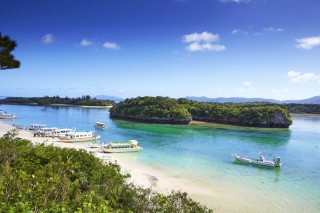
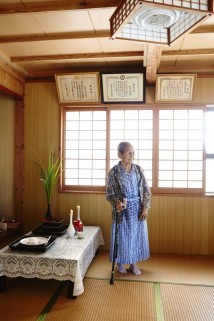
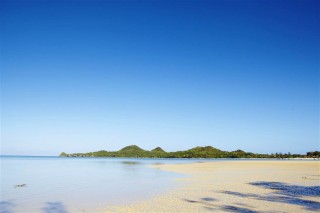
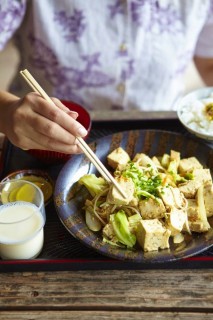
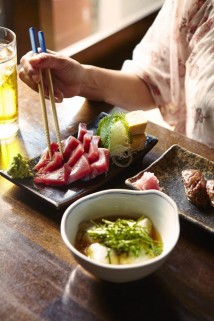
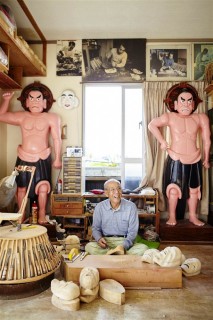
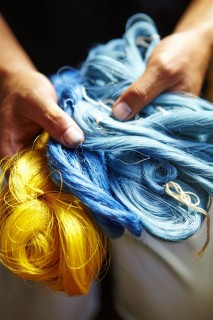

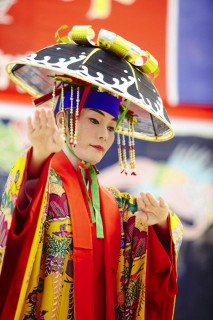
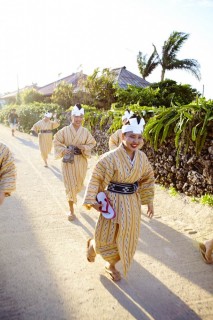
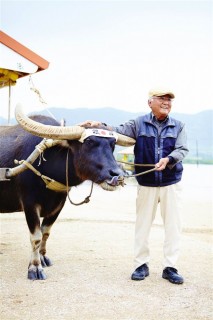
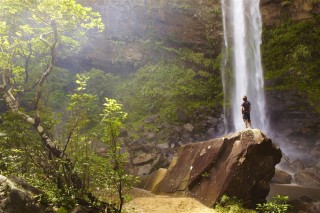
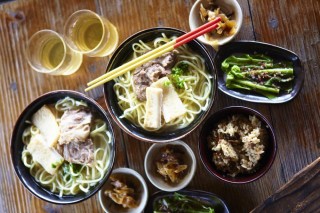
discount tadalafil <a href="http://www.canadotcphar.com/">canada rx pharmacy</a> canadian cheap viagra
cialis coupon for pharmacy Web Site- December 2, 2022